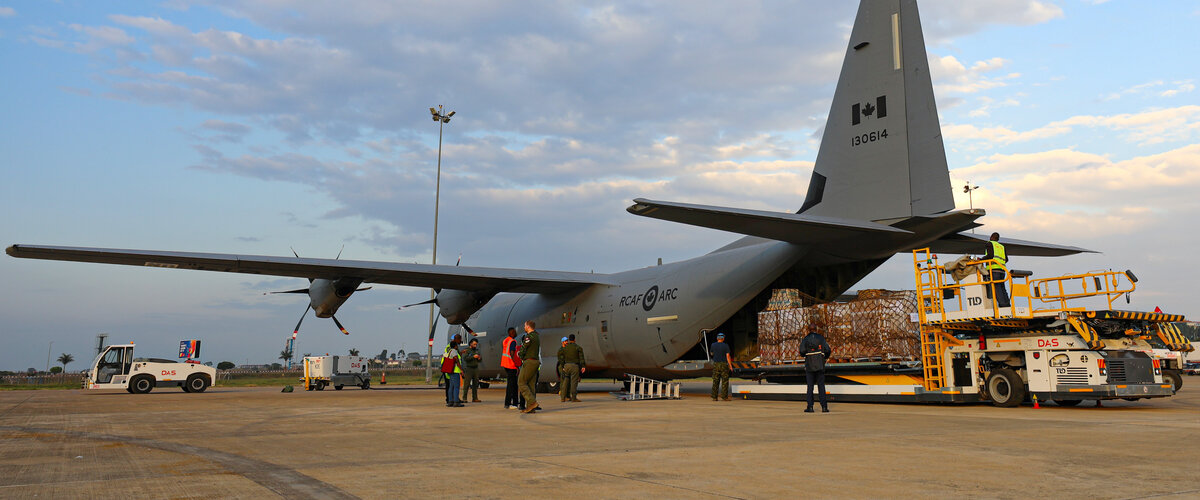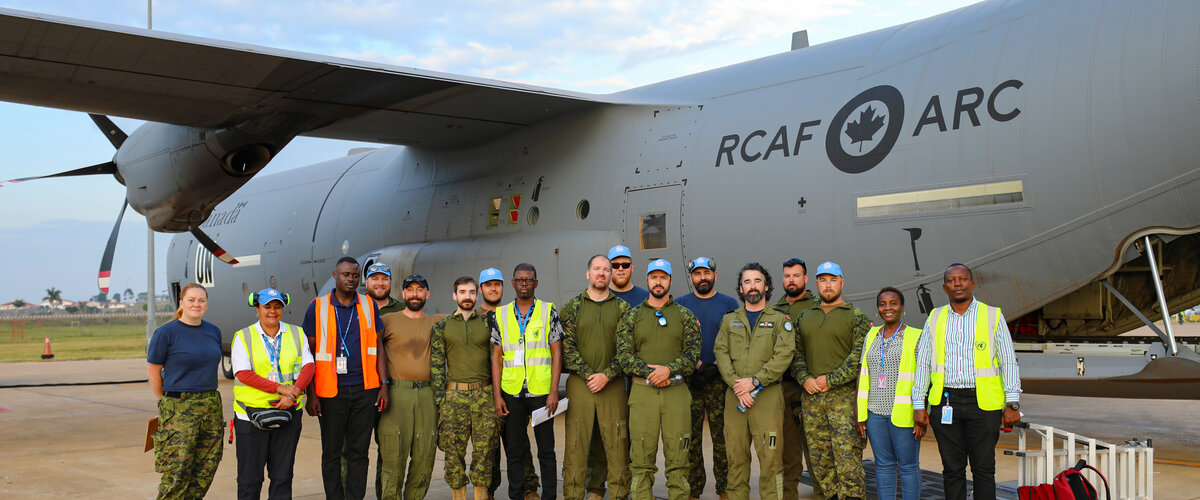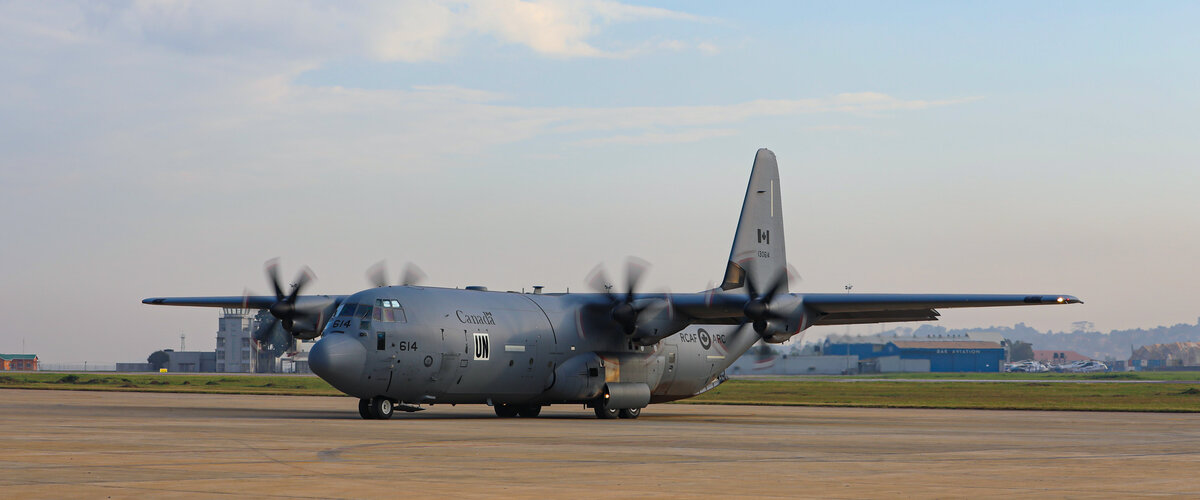FSDH Coordinates Flight Services of Canadian C130 Cargo Plane in the Region
The Forward Support and Deployment Hub (FSDH) based at the Regional Service Centre Entebbe has coordinated the flight services of a C130 Hercules cargo plane from the Canadian government for a period of two weeks for UNMISS. The UNMISS operations conducted 16 cargo flights between Entebbe, Juba, Wau, Malakal and Bentiu.
In 2019, the Canadian Government and the United Nations signed a formal agreement in the form of a Letter of Assist 2019-103 in which Canada agreed to provide air transportation services to the UN in support of the United Nations Stabilization Mission in the Democratic Republic of Congo (MONUSCO) and the United Nations Mission in South Sudan (UNMISS). The Canadian C-130 now will be a regular feature and will be providing air cargo services to Missions in East Africa every alternate month.
This agreement formalized the Canadian Government's continued support to the United Nations and their stabilization efforts in the East and Central African region.
FSDH provide logistical specialist services in terms of aviation, regional deployment stocks, freight forwarding and movement operations to all missions in Africa.
With the LOA on the C130 aircraft, the FSDH can provide more services to their client missions directly from Entebbe.
“During our operations, we had the opportunity to meet members of UNMISS, Chief of Air Region and MOVCON in various airfields around South Sudan. It was a great experience for our team to have the opportunity to work alongside members of the UN as we worked towards achieving a common goal.” said Major Samantha Behm, Detachment Commander, Royal Canadian Air Force
The capability the aircraft provides is critical in field locations as the C130 was designed with the capability of using unprepared runways for takeoffs and landings.
“We are able to move large amounts of cargo, otherwise difficult and expensive to move, during seasons where road access is limited due to flooding. During our time here, we assisted in moving vehicles, bottled water, medical supplies as well as general cargo which will assist UN members in doing their jobs further down range. It is always rewarding for us as aviators to be able to provide this type of support to enable operational success on the front lines.” Added Major Behm.
Sanjay Khanna, Chief of Logistics FSDH reveals that they are also in talks with the Government of Uganda to provide a more accessible C130 to further aid in the delivery of the DOS mandate.
“We are working with Uganda Airforce to get a C130 very soon to help the clients who have huge requirements because of the gaps in air cargo movement capacity especially in places hard to reach by road. This will be a game changer, not only for RSCE but also for our clients that have a lot of cargo to be moved within the mission and from Entebbe to the missions.” Sanjay said.
The aircraft provided by the Canadian government is on a monthly rotational cycle between Entebbe and other assignments and the first port of call was to facilitate cargo Movements for UNMISS who had large consignments to be moved.
ABOUT FSDH:
FSDH is a Section of the Logistics Division in the Office of Supply Chain Management (OSCM) located in the Regional Service Centre (RSCE) in Entebbe. The Section was established by General Assembly resolution A/75/770 dated 22 February 2021, which provides the vision for more agile, cost-effective, transparent, and accountable services for all Secretariat offices through the identification, acquisition and delivery of goods and services at the right place, the right time, and the right cost, while increasing cooperation within the UN system.
ABOUT RSCE
The RSCE is the flagship Service Centre for the UN Secretariat and provides administrative, logistics and ICT services to 18 UN peacekeeping missions and small political offices in Africa. Based in Entebbe, Uganda, we consolidate administrative and support functions previously located in various field missions in a less volatile, more family-friendly regional location, with the goal of providing efficient, client-orientated and scalable services while reducing the missions’ footprints to UN field missions across the continent.
 UN
UN United Nations Peacekeeping
United Nations Peacekeeping






